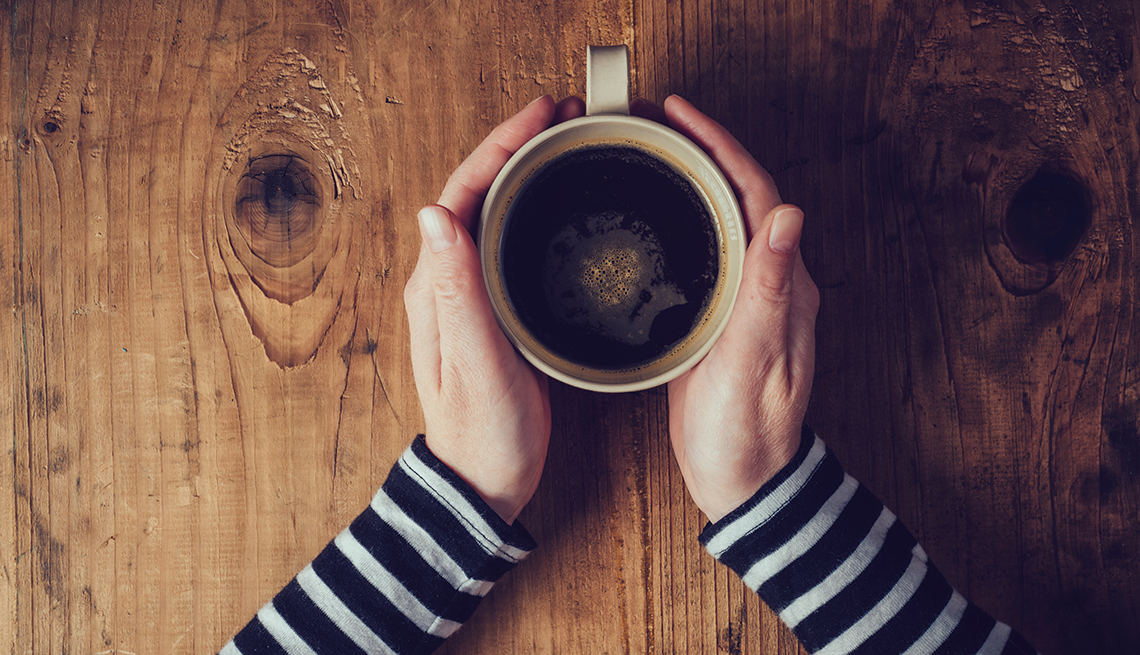Since I'm (Rob) an avid coffee drinker and a scientist, I love scientific studies about coffee. Especially ones that tout it's benefits, because I usually drink about 8 to 10 cups a day. Drink up, but leave out the cream and sugar. - Rob
As many as four cups a day could provide a health boost

iStock
A pair of new studies show drinking more coffee offers life-extending benefits.
The health effects of drinking coffee have been a point of debate over the years, with some studies showing negative effects and others positive. These just-released studies should calm the jitters for those who rely on their daily jolt — or jolts — of caffeine to get through the day. The first study, conducted by researchers from the International Agency for Research on Cancer and the Imperial College London, surveyed more than 520,000 people in 10 European countries, making it the largest study on the correlation between coffee and mortality ever conducted in a European population. Its finding: Drinking more coffee significantly reduces the risk of death.
A second, separate study funded by the National Cancer Institute included a diverse set of subjects, surveying more than 185,000 adults from a range of ethnicities, including African Americans, Native Americans, Hawaiians, Japanese Americans, Latinos and whites. It found that the mortality boost provided by coffee extended across all races included.
Both studies were published in the journal Annals of Internal Medicine.
The European study found that drinking coffee lowered people's risk of liver, digestive and circulatory disease, and also lessened the rate of suicide in men and cancer in women. The survey also found that the more coffee you drink, the bigger the health boost. Subjects who drank three cups had a lower risk of all-cause death than those who did not drink coffee.
By focusing on various European countries, where coffee is prepared in many different ways, the study aimed to prove that positive health effects of coffee endure, regardless of preparation and serving style.
"The fact that we saw the same relationships in different countries is kind of the implication that it's something about coffee, rather than something about the way that coffee is prepared or the way it's drunk," said Marc Gunter, a principal investigator with the international research agency.
The second study echoed those findings, revealing that those who drank two to four cups a day had an 18 percent lower risk of death than those who did not drink coffee.
"Given these very diverse populations, all these people have different lifestyles. They have very different dietary habits and different susceptibilities — and we still find similar patterns," said study leader Veronica Wendy Setiawan, associate professor of preventative medicine at USC's Keck School of Medicine.
Not to drop a cloud in your coffee, but doctors caution that people should still practice moderation when it comes to their daily indulgence, and nutritionists warn that adding flavorings such as heavy cream and sugar can increase your caloric intake and nullify many of the health benefits of black coffee.
Both studies were published in the journal Annals of Internal Medicine.
The European study found that drinking coffee lowered people's risk of liver, digestive and circulatory disease, and also lessened the rate of suicide in men and cancer in women. The survey also found that the more coffee you drink, the bigger the health boost. Subjects who drank three cups had a lower risk of all-cause death than those who did not drink coffee.
By focusing on various European countries, where coffee is prepared in many different ways, the study aimed to prove that positive health effects of coffee endure, regardless of preparation and serving style.
"The fact that we saw the same relationships in different countries is kind of the implication that it's something about coffee, rather than something about the way that coffee is prepared or the way it's drunk," said Marc Gunter, a principal investigator with the international research agency.
The second study echoed those findings, revealing that those who drank two to four cups a day had an 18 percent lower risk of death than those who did not drink coffee.
"Given these very diverse populations, all these people have different lifestyles. They have very different dietary habits and different susceptibilities — and we still find similar patterns," said study leader Veronica Wendy Setiawan, associate professor of preventative medicine at USC's Keck School of Medicine.
Not to drop a cloud in your coffee, but doctors caution that people should still practice moderation when it comes to their daily indulgence, and nutritionists warn that adding flavorings such as heavy cream and sugar can increase your caloric intake and nullify many of the health benefits of black coffee.


